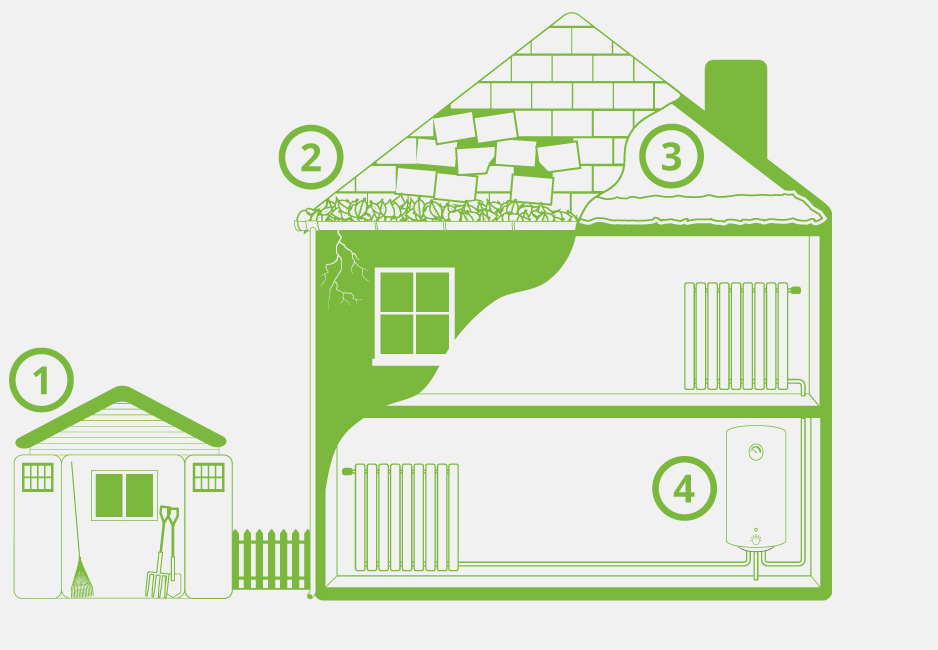Autumn is officially here, with winter not far behind. Now is the perfect time to start winter-proofing your home or rental property. Taking care of a few odd jobs now can save you a lot of time and aggravation in the winter months – as well as avoid unexpected repairs and bills later.
Click a number on the house

Completing these measures now could negate huge repair bills later down the line. Although you can claim for damages caused by tenant negligence in a deposit dispute, it’s far easier to have happy tenants who are more likely to do the right thing. With all these plus points, there really is no reason not to prepare your properties for winter.